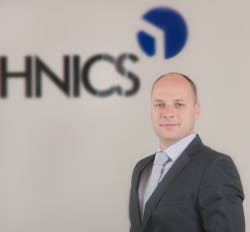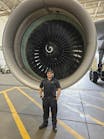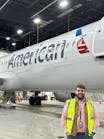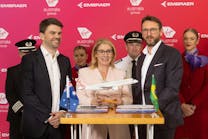Aircraft Deliveries: a Blessing for the Industry and a Nightmare for Airlines
While both old and new players of the aviation industry are getting ready to welcome hundreds and thousands of new aircraft to their fleets, the industry itself seems to send some worrying signals. For instance, recently Republic Airlines has disclosed it would be removing 27 of its 243 aircraft from service because of the lack of qualified pilots and can potentially cancel its order for 40 CS300 aircraft. Great Lakes Aviation has also suspended six services due to industry-wide pilot shortage. Despite the fact that there are a lot of other factors to consider, is it possible that the upcoming number of new aircraft is simply too large for the market to handle?
The growth of the global aircraft fleet is no big news for the industry. As the demand strengthens, the airframers are raising the manufacturing rates of the existing products and accelerating the assembly stages of the new ones. For instance, recently Mitsubishi Aircraft Corporation has informed that the structure of the first Mitsubishi Regional Jet is complete and the company is nearing the final assembly stage of the first prototype, with the customers already lining up for 165 aircraft. The Chinese airframer Comac is also expected to launch the final assembly stage of its first test C919 aircraft, which has garnered 400 orders so far. Moreover, Airbus has been thinking about the introduction of new aircraft that would bridge the yawning market gap between the A350-1000 and the A380, which Boeing has exploited with the 777-300ER and 747-8 and will most likely continue to dominate the market with the 777X from 2020. Therefore, a lot of experts believe that Boeing and Airbus rivalry will eventually force Airbus to introduce a completely new aircraft family.
In the meantime, more and more MRO providers around the world are complaining about the worsening situation with regard to available workforce. For instance, Hong Kong-based HAECO’s profitability is continuously getting hit, despite the company’s attempts at taking various measures to improve the situation: in 2013 the company’s airframe man hours sold fell by 18%, while its profit decreased by 75.3%. Many Canadian MRO providers have also expressed their worries about the evaporating talent pool, as the current generation of technicians are getting closer to the age of retirement, with a few new ones coming to replace them. Moreover, the new-generation of aircraft is driving the growth in demand for the new types of skills. On the other side of the globe, Pratt & Whitney representatives in Singapore have also reported facing a shortage of MRO talent and the recent research has revealed the same problems in the Middle East. Whether or not these separate cases can be viewed as the symptoms of the same illness, the industry experts state they still have to be addressed with all the seriousness.
“The decisions to remove aircraft or to cancel orders due to pilot shortage naturally raise questions about other industry players, such as MRO providers, that are also directly affected by the increase of plane production. Of course, the federal law which has increased the minimum flight experience for most commercial aviators to 1,500 hours from 250 in the U.S. has also dramatically increased the time and cost to become a pilot, which, in turn, has further prompted pilot shortage. However, is it possible that, as the deliveries roll out, it will appear that such an amount of aircraft is simply too much? Can the industry choke?” asks Kestutis Volungevicius, the Head of FL Technics Training.
Due to the on-going rapid expansion of the fleet, which is driven by the constantly rising demand for air travel (in 2013 passenger numbers topped 3 billion for the first time and are expected to increase to 3.3 billion in 2014) MRO providers are forced to hire thousands of new technicians to support the upcoming aircraft. However, according to Kestutis Volungevicius, while these statistics are interesting and impressive, they are still purely theoretical. Meanwhile, in reality the demand pushes the industry to grow and the technological progress tends to outpace the developments in the workforce, especially as a large number of current generation technicians is expected to retire over the next decade with only a few new specialists coming into the market.
“The common practice for the last several years has been as follows: if a country does not have the capabilities to support a larger number of aircraft, then those airplanes are shipped where they can be maintained. However, to what extent is such a wave of outsourcing really possible?” wonders the Head of FL Technics Training. “Of course, there is an option of renewing the fleet, rather than expanding it, but then the training providers will have to face the need of requalifying the existing personnel. Moreover, with a number of new entrants in the industry, the rising demand for proper basic training is another factor to keep in mind. The industry players should have these conversations today and get ahead of it, before the problem that seems difficult today gets a lot worse tomorrow."
About FL Technics Training:
FL Technics Training is a provider of technical training for the aviation industry. The company offers comprehensive training services including basic training and examination, aircraft type training and specialized training for aircraft maintenance technicians as well as administrative and management personnel. FL Technics Training is part of an integrated aircraft maintenance and repair organization (MRO) FL Technics.
Based in Vilnius, Lithuania, FL Technics Training is certified as a European Aviation Safety Agency (EASA) Part-147 training organization providing courses for basic, aircraft type training and customized training programs designed according to individual client requirements. The company serves a wide range of customers from Europe and the CIS (Poland, Romania, Ukraine, Moldova, Russian Federation etc.), Asia-Pacific (including South Korea, Pakistan, Kazakhstan, Tajikistan, and etc.), Africa, Cuba and other regions.
Drawn up in accordance with the requirements of the EASA, FL Technics Training programmes cover four areas: basic training, aircraft type training, specialized aviation training and consulting services. FL Technics Training offers training for diverse aircraft types: Airbus A318/A319/A320/A321, Airbus A380/340/330, ATR 42 - 200/300, ATR 72 - 100/200, Boeing 737 - 300/400/500, Boeing 737 - 600/700/800/900, Boeing 757 - 200, Boeing 767 - 200/300, Boeing 747/777/767, Saab – 340, Saab – 2000, Bombardier CL-600-2B19.
FL Technics Training offers specialized training programs of general interest for technical as well as administrative personnel from Engineering and Planning, Quality system, EASA Regulation Part-145 and Part-M to Fuel Tank Safety courses. Training programs can be adapted to meet the specific needs and requirements of clients.
More than 3000 students for over 45.000 hours per year are trained at the company's theoretical courses in Moscow, Tyumen, Alma Ata, Vilnius and London. Training on the job is executed in Vilnius, Kiev and London.
For further information please visit website http://www.fltechnicstraining.com/



